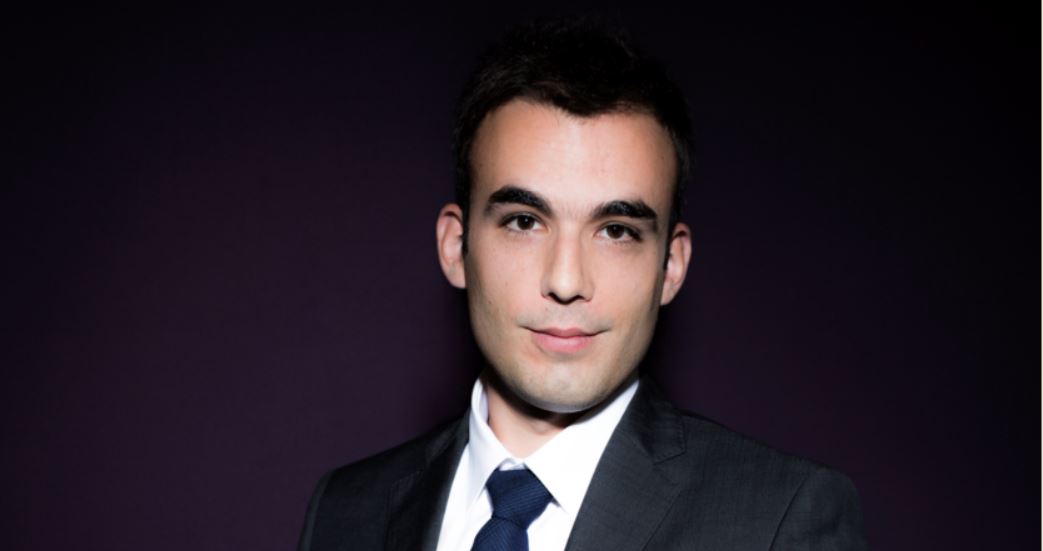Emmanuel Macron aide blames Russia for hacking attempts
Russia watchers say Moscow is deploying considerable resources to swing the French election.
A top aide to French presidential candidate Emmanuel Macron accused Russia on Monday of trying to hack into his campaign’s computer systems and spreading disinformation about him via Kremlin-backed news media.
In the campaign’s clearest accusation yet against Moscow, Macron’s campaign manager Richard Ferrand said Russian-backed websites were behind a surge in attempts to hack the campaign infrastructure. He also denounced a Kremlin-sponsored campaign to smear Macron with “fake news,” or misinformation, due to his pro-EU stance.
“There are hundreds if not thousands of attacks on our computer system, our database and our sites, and by chance this happens to come from the Russian border,” Ferrand, a Socialist MP, told France 2 TV. “We want a strong Europe. That’s why we are suffering from attacks from several information sites belonging to the Russian state.”
He added: “We ask the highest authorities of the French state to make sure there is no Russian meddling in the campaign.”
Ferrand drew parallels between the situation in France and the campaign against Democratic U.S. presidential candidate Hillary Clinton.
With three months before the election’s first round, French authorities are on high alert. President François Hollande, who has yet to name Russia as the source of possible meddling, is expected to preside over a top-level defense council meeting in the coming days to address concerns about hacking and interference, Le Canard Enchainé reported last week.
Yet Macron’s campaign is the first and only one among the three frontrunners to flag Russian hacking and misinformation. François Fillon, the conservative candidate currently embroiled in a scandal over disputed payments to his wife and children, has not mentioned the issue, while far-right leader Marine Le Pen has brushed off hacking in the U.S. presidential campaign as “conspiracy theories.”
Macron, meanwhile, has come under increasing attack.
When polls showed the former economy minister beating Le Pen in the election’s runoff, Kremlin-backed outlets RT and Sputnik ramped up negative coverage while cheerleading for the National Front president. In one story widely criticized in France for conflating rumor and fact, Sputnik News reported February 4 that Macron was backed by a “gay lobby” and was a “U.S. agent” for banks.
“There is a very wealthy gay lobby behind him [Macron]. That says it all,” Nicolas Dhuicq, a French conservative MP, told Sputnik in Moscow. “The controversial details of his personal life and ties [will] soon become public.”
However, when later asked in France to elaborate, Dhuicq at first backtracked by telling the C à Vous talk show that he “never said there was a gay lobby,” then reversed himself, saying there was indeed a “very wealthy gay lobby,” while refusing to comment on the “controversial details.” He added: “I am not insinuating anything, but I want them to stop telling us stories.”
Macron himself laughed off rumors about his personal life. “If they tell you I have a double life, that must be [my] hologram who has gotten out of my reach,” the candidate, who is running as an independent, said last week at a meeting in Paris.
When asked about such stories, Ferrand said, “False information from Russian media is weighing on our democratic life.”
Hybrid warfare
Beyond false or misleading information, Russian media is pumping out dozens of negative stories and editorials about Macron each day. Some draw upon WikiLeaks documents mentioning alleged ties between Macron and Hillary Clinton’s entourage, or an interview that its founder Julian Assange gave to Russian newspaper Izvestia. Others are critical editorials that accuse Macron of being on a mission for big banks.
“Emmanuel Macron as a new and outsider candidate — ‘a complete fraud,'” read a typical headline on RT February 3. It was one of 13 published on the Russian media’s French-language site this month with a negative headline about Macron, while more than 10 carried neutral or positive headlines about Le Pen.
Russia watchers say Moscow is deploying considerable resources to swing the French election through a combination of hacking and biased media coverage, namely in favor of Le Pen, given Fillon’s campaign has been damaged in the payments scandal.
“We are looking at an unprecedented investment [by Moscow] in France, which is part of a broader Russian effort to advance its interests in the West,” said Julian Nocetti, a Russian specialist at the Institut Français des Relations Internationales, a think tank. “Moscow’s strategic doctrine advocates a hybrid approach combining diplomacy, shaping the media narrative and feeding the beast with documents obtained from hacking.”
Nocetti’s IFRI colleague Tatiana Kastoueva-Jean, also a Russia specialist, added: “The objective is not necessarily to lie, but to combat the dominant narrative so that people become confused about where the truth lies.”
RT France alone, which launched earlier this year, operates on a budget of €18 million with a permanent web staff of 10 in France, as well as TV broadcasting. Sputnik’s French site, which is one of many foreign-language outlets, did not answer requests for comment on its budget or staffing.
Nocetti underscored that Moscow had earmarked spending on media operations as being “strategic,” like the gas industry, to protect it from cuts linked to lower energy prices or a falling ruble.

Media:

Share








